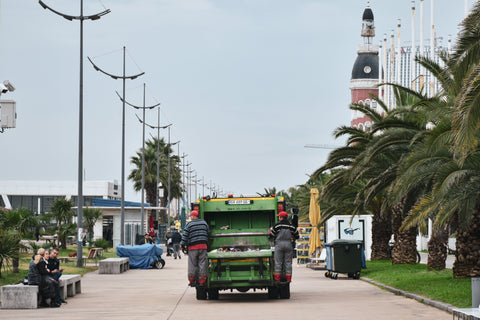FAQs on Trash and Waste Management
Answer: The common types of waste include solid waste, liquid waste, organic waste, hazardous waste, and recyclable waste.
Answer: You can reduce household waste by practicing recycling, composting organic waste, minimizing packaging, opting for reusable products, and avoiding single-use items.
Answer: After trash is collected, it is typically transported to a landfill or a waste-to-energy facility, where it is either buried or incinerated, respectively.
Answer: While plastic bags can be recycled, they often cause issues at recycling facilities. It's best to check with your local recycling program for specific instructions or consider using reusable bags instead.
Answer: Hazardous waste, such as batteries, paints, and chemicals, should be taken to designated hazardous waste collection centers to ensure proper disposal and prevent environmental contamination.
Answer: Improper waste disposal can lead to pollution of land, water, and air, harming ecosystems, wildlife, and human health. It can also contribute to climate change through the release of greenhouse gases.
Answer: Recycling helps conserve natural resources, reduces energy consumption, minimizes landfill space, and decreases pollution associated with the production of new materials.
Answer: Organic waste such as fruit and vegetable scraps, coffee grounds, eggshells, yard waste, and non-greasy food waste can be composted.
Answer: Waste management plays a crucial role in sustainable development by promoting resource conservation, reducing environmental impacts, and fostering a circular economy.
Answer: Yes, alternatives to single-use plastics include reusable bags, water bottles, metal or glass containers, and biodegradable or compostable packaging materials.
Answer: You can participate in community clean-up initiatives by joining local clean-up events, organizing your own clean-up activities, or volunteering with environmental organizations focused on waste reduction.
